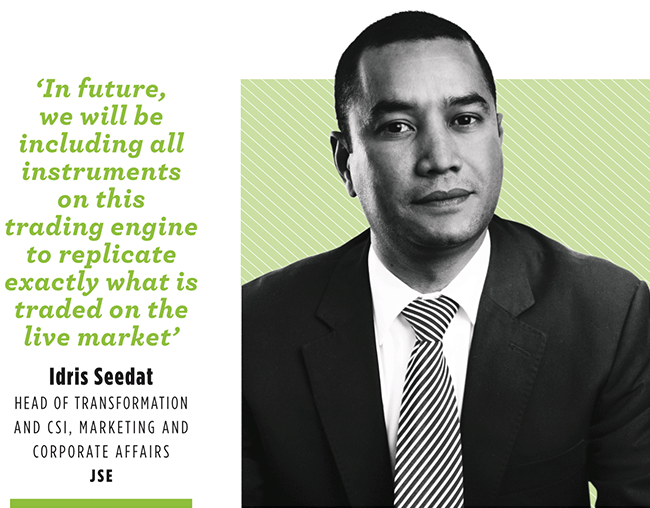Not even the national school closures and other pandemic-related restrictions could hold back ‘the Queens’ from Mpumelelo Secondary School in Mpumalanga. The all-girl team outperformed their peers – many from better-resourced and some from top private schools – by winning the Income Portfolio category of the 2020 JSE Investment Challenge. A team from Settlers High School came first in the Equity Portfolio while the Speculator prize went to Reddam House Durbanville, both from the Western Cape. The university competition was won by Team Piker from UCT.
This year brought entirely new challenges to the JSE’s flagship CSI initiative that has, for the past 47 years, equipped young South Africans from diverse cultural, geographic and economic backgrounds to take charge of their financial future. Despite the hardships of the COVID-19 crisis, 2020 still saw 9 429 learners from 250 schools and 2 588 students from 69 universities participating in the JSE Investment Challenge.
‘The JSE, and investing in shares, has not been part of the general life of most South Africans,’ says Idris Seedat, Head of Transformation and CSI, Marketing and Corporate Affairs at the JSE. ‘They are seen as remote institutions and practices that only a privileged few know about.
‘The JSE Investment Challenge seeks to change this and – to encourage broader participation in the economy but without creating a populist culture of uninformed share dealing, which has seen disastrous consequences. The JSE has therefore been instrumental in breaking the economic barrier that exists among “have” and “have-not” learners. We aim to be a catalyst for teachers and mentors, to assist disadvantaged schools that will enable them to compete on an equal footing with learners from more privileged schools.’

The challenge takes the form of a simulator where each team of four learners from the same school is given a virtual investment amount of R1 million. They then trade this money on the stock market and invest in actual JSE-listed shares over a six-month period, from March to September. In addition to the monthly prizes, they compete for annual prizes, which, for the top-performing teams, means that each team member receives prize money in an ETF investment account. The top-performing university team wins R25 000 plus a trip to an international stock exchange. The 2019 winners went to New York but, due to the uncertainty regarding travel restrictions, the upcoming prize destination still needs to be confirmed.
This year presented unprecedented challenges, not only in terms of the huge market volatility in response to COVID-19, but also because participants were not allowed to interact in person due to government lockdown restrictions, and not all of them had internet access or airtime during the school closures.
However, the JSE Investment Challenge requires only a small amount of time spent online, and teams that are strategic can share the cost and assign this task to one individual, or take turns and discuss how often they need to be online. The JSE Investment Challenge team also increased its support for mentors and teachers through training webinars, and made itself available to the learners in live, interactive question-and-answer sessions on social-media channels.
‘This year we also included new instruments such as single-stock futures to be traded on the Investment Challenge platform,’ says Seedat. ‘This is for the learners and students to further enhance trading skills and possible ways of hedging their portfolios by using other “exotic” instruments available on the JSE. In future, we will be including all instruments on this trading engine to replicate exactly what is traded on the live market.’
This will offer an even more realistic simulation for the young participants, allowing them to hone their financial literacy and investment savviness further, and taking them one step closer to becoming valuable future contributors to the SA economy.








